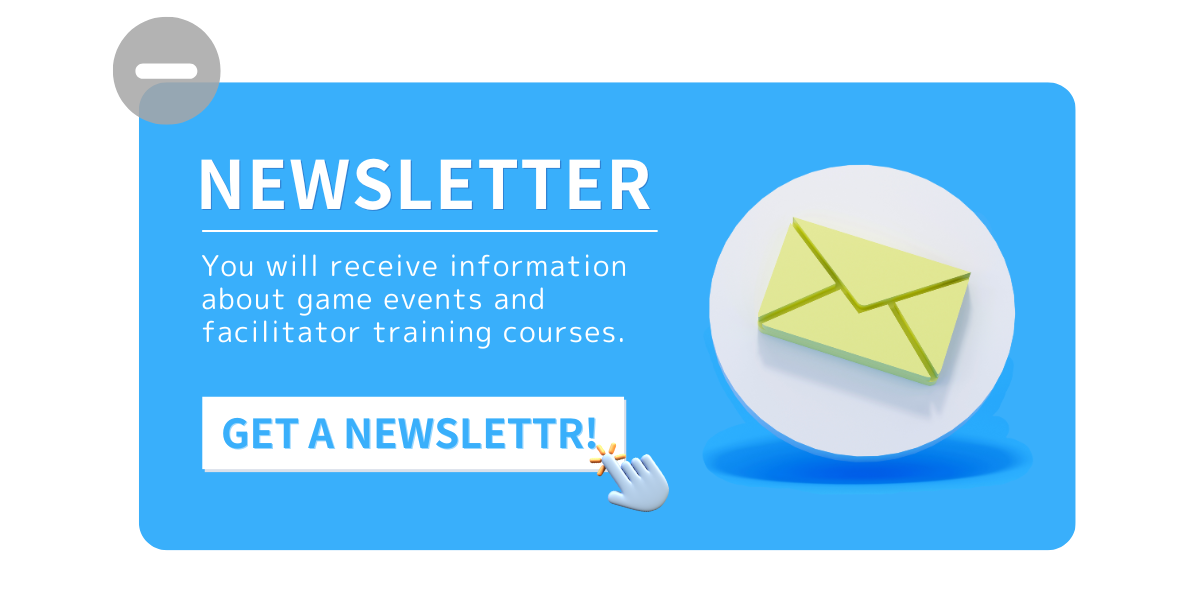ABOUT US
Hello, my name is Takeo Inamura.
Rather than introduce our work in a conventional way, allow me to tell you how this game got started.
In the beginning
It all started in February 2016 when a friend and I co-created the 2030 SDGs Game. (My friend’s name is Nobuhide Fukui; we have known each other since university. His genius is designing games as part of corporate trainings; for example, one of the trainings he developed is used by Toyota in their hiring process. He has designed more than 100 business simulation games.)
Within a day of launching an event page for to hold an 2030 SDGs Game event with a capacity of 25 people on my Facebook feed, the event was packed and had received more than 750 “likes.” These responses were mostly from people I do not know directly.
Word of this workshop continued to spread even after that, and it became difficult for me to respond to those demands alone. So in autumn 2016, I established the nonprofit corporation Imacocollabo with another friend, Takeshi Muranaka (everyone calls him Mura-san).
The word “Imacocollabo” is a blend of several words: Ima, which means “now” (rather than someday), and coco means “here” (rather than somewhere else); the last part also is meant to evoke both collaboration (“collabo”) and experimentation, such as in a laboratory (“labo”).
In other words, Imacocollabo is our way of saying, don’t expect someone, some day, to take effective action; instead, take action yourself, right here and right now.
It does not matter if it is imperfect. Actually, imperfection leads to collaboration and creates the possibility of creating something new and unpredictable.
At Imacocollabo, we offer 2030 SDGs Game events and train certified facilitators. In addition, we offer programs that support transformation of the consciousness and behavior of both corporations and individuals.
Approximately 15,000 people participated in in corporate and open public game events in 2017.
Embodying the transformation
Many people are unaware that the official title of the of the United Nations’ SDGs document is
“Transforming our world: the 2030 Agenda for Sustainable Development.”
We believe that for this transformation to occur, it is essential to have individuals and groups who make up those systems transform their own consciousness in tandem with the social systems they are trying to change.
This is why, through a long process of trial and error, we have come up with a fee structure for the 2030 SDGs Game that reflects that belief. After giving much thought to various options—such as simply selling the game kits, providing the cards free of charge while raising money through crowdfunding, and various other methods—we decided instead to give the game kits only to people who have completed the facilitator training program.
There are two pillars to our current methodology:
- Getting the game to the greatest number of people without sacrificing quality
- Making use of the power of money. So those who can afford it are asked to pay, and those who cannot afford it are not. We do not want there to be people who cannot have the experience because they cannot pay for it.
First of alI, we believe that it is crucial to have as many people as possible become familiar with the concept of the SDGs in order for society to transform and become sustainable. In this sense, the more people who discover the SDGs through the game, the better.
In other words, we are aiming for a high “quantity of experiencers” of the game.
At the same time, it is also important that the experience of the game participants be a positive one, from which they both enjoy and learn.
If it’s not a good experience, there’s no point in having the experience in the first place, and the number of participants would probably quickly peak if more and more of them reported feeling the game was boring, or that they didn’t learn anything from it. In other words, the quality of the experience” is also very important to us.
In order to simultaneously grow the number of game experiencers and reliably maintain the quality of the experience they are getting, it is indispensable for us to work with professional facilitators, people who regularly charge for their facilitation work. Put another way, this aim cannot be reached with facilitators who have insufficient commitment and skill.
At one point in the past, something happened that galvanized our decision: although the game itself is outstanding, some facilitators were offering the game events free of charge. While in itself, this is a nice concept, the quality of the experience dropped, halting the spread of the game despite its intrinsic value.
This is why we charge fairly high fees for our facilitator training program: basically, we have set it up so that non-professional facilitators cannot afford to take the course.
It is not that we believe that all valuable activities involve money. In fact, in our view, it is the monetization of everything that has contributed to creating the failure of the current global system. While making use of the power of money, we do not want to be at the effect of money; therefore, our aim is to take a balanced approach.
What approach is best will probably change a great deal moving forward, based on how our own values and the collective consciousness and the social systems change.
The important thing for us is that in order to transform the world into its next stage, we believe it is crucial for the structure supporting the use of this 2030 SDGs Game to be a model of transformation as well.
To deliver the game experience all over the world to people who need it
We are pleased to report that we are receiving inquiries about the game from countries and regions in all over the world.
Indeed, 2030 SDGs Game events have now been were held in the United Kingdom, the United States, China, Thailand, Australia and others to high acclaim.
Concrete movement toward that vision has already begun; it is my hope to co-create this path with like-minded people from all over the world.
Members
Takeo Inamura
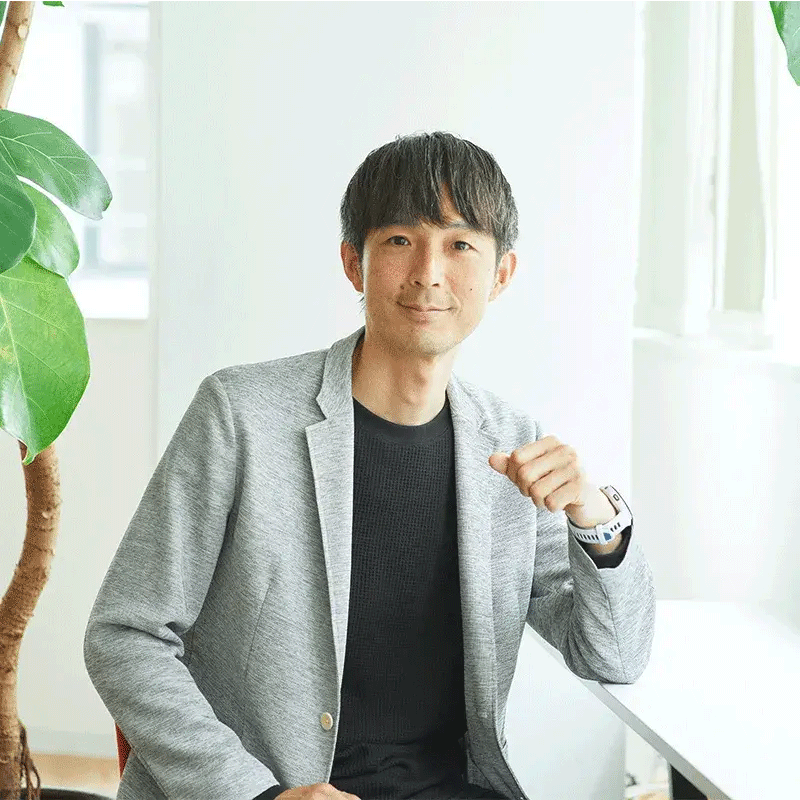
Co-Chair/Co-Founder,Imacocollabo
In 1999, Takeo Inamura participated in the founding of a venture company. As a director starting in 2003, he tripled the company’s sales in two years and also played a central role in capital measures and business alliances.
He then worked as a top corporate sales representative for an e-learning company. After leading corporate sales, finance, and overseas business start-ups for several companies, he left to start his own business.
While deeply engaged in various startup and experimental activities such as overseas training, inner transformation, natural farming, play parks, and environmental work, he developed the 2030 SDGs Game in 2016 and founded General Incorporated Association Imacocollabo, becoming its executive director.
2030 SDGs Game workshops have been experienced by as many as 400,000 people from 30 countries, marking an unprecedented success for a workshop originating in Japan. More than 1,400 certified facilitators are active worldwide.
Currently, his greatest interest is childcare. Through observing and studying children, he hopes that the field of childcare will help him deepen relationships between himself and others, and in turn, expand the possibilities of humanity.
Takeshi Muranaka
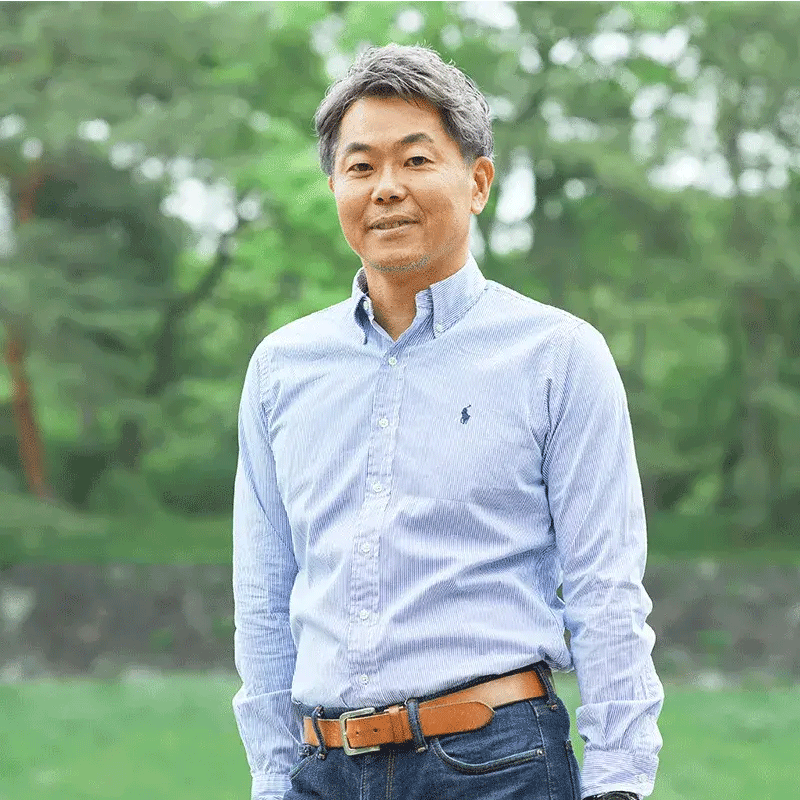
Co-Chair/Co-Founder,Imacocollabo
After graduating from university, Takeshi Muranaka joined IBM Japan and led numerous projects to success as a project manager. At IBM, he also worked actively outside Japan as well, including being stationed in the U.K. and China. In China, he managed 1,000 subordinates and led nearly 100 projects simultaneously. After diligently working on the front lines of a global business, he sensed the limitations of short-sighted goal-achievement cycles and overly shareholder-oriented capitalism and left IBM at the end of 2012 to pursue the possibility of creating new management, business operation, and society.
After starting two companies, he launched Imacocollabo in 2016, where he created the structure of the 2030 SDGs Game Facilitator training course and implemented it worldwide, with 400,000 people experiencing the game so far. He has also facilitated the game himself at United Nations Headquarters in New York.Currently, through this Partnering for Business Development project, he provides leadership development (Being) through practical work (Doing) to executives and companies.
He loves the ocean and surfing and rides the waves of Chiba every week.
His Japanese book, The Power of Looking Ahead to Motivate People (2008), became a bestseller with more than 50,000 copies sold. It was also published in South Korea and Taiwan.
Master Facilitators
Joel Mitchell
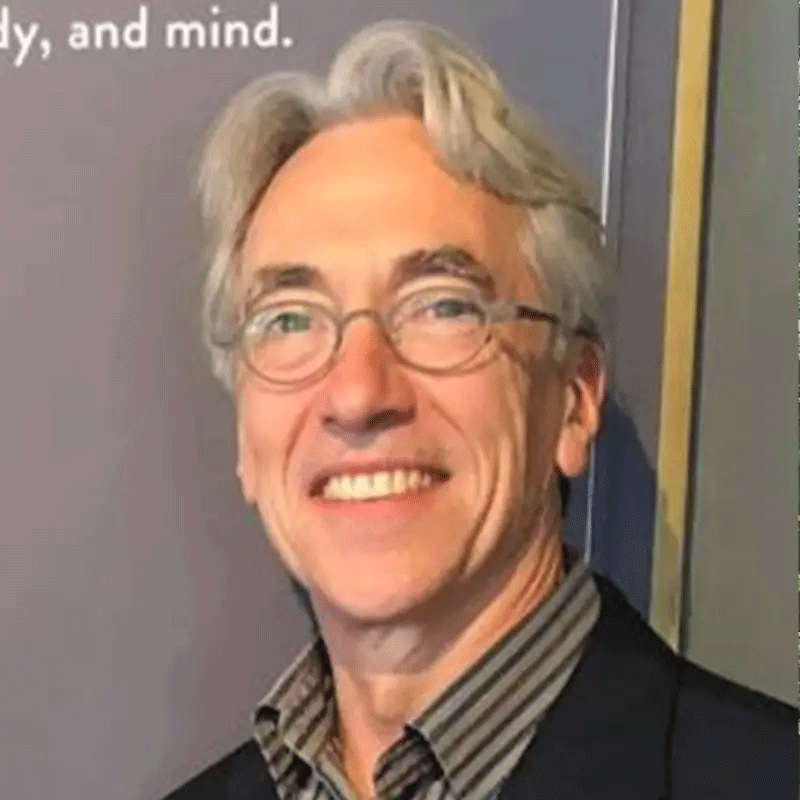
Joel Mitchell’s Midwestern US youth was singing and music, stars, birds, the natural world, dreams, myth and also yoga, meditation, Chi Gong and even bio-feedback long before these became mainstream. While completing professional performance studies in NYC, he worked for two international banks before moving to Paris in 1990 to begin his world citizen adventure.
Appearing as singing actor in opera, concerts, theater and film, Joel is now blessed with colleagues and friends in all the European capitals.
Traveling to Japan and China, Joel developed educational programs for international business schools,networking students, alumni and faculty with business leaders,entrepreneurs, government and cultural institutions,and facilitating Paul Hawken’s WiserEarth.org (social network for sustainability) adaptation into Chinese.
Inspired by Buckminster Fuller’s vision of a world that works for everyone, Joel masterminded a series of community events in Tokyo (2014) around the commitments and vision of Lynne Twist, global activist, and her Pachamama Alliance and Soul of Money Institute.
Today Joel facilitates authentic dialogue with individuals, teams and institutions, helping them hear the essence of their true calling, and letting that move them into inspired action.
Alice Richard
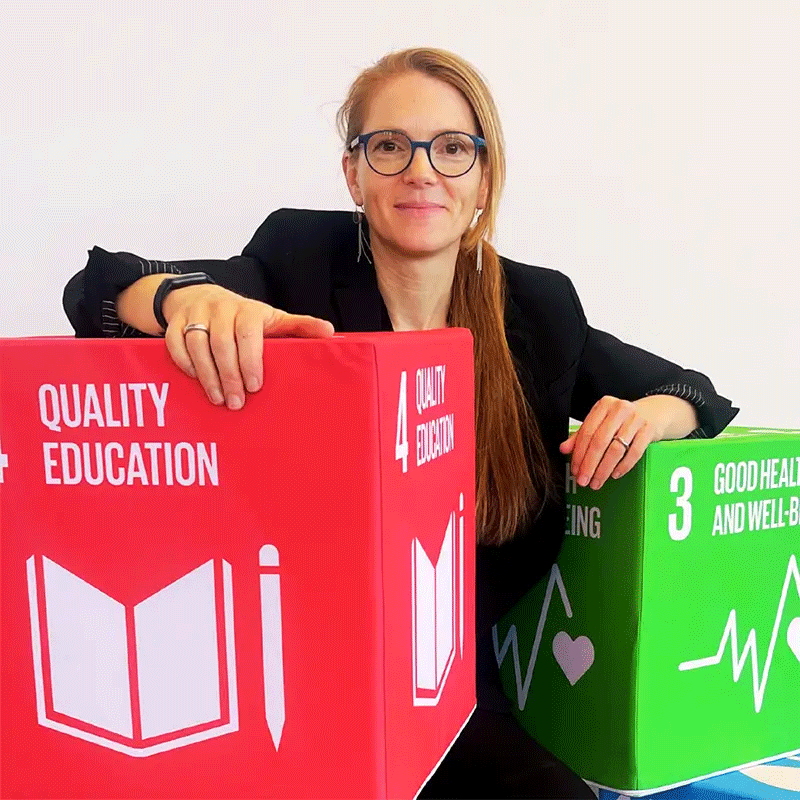
As a former innovation consultant, United Nations staff member, and product designer, Alice’s career has been built around products and collaborations that drive positive change. Today, she combines her experience and passion to deliver impactful training that inspires and ignites action for a sustainable future.
Seeking a new entrepreneurial challenge at the intersection of innovation and impact after taking a career break to be with her young family, Alice discovered the 2030 SDGs Game and immediately saw the potential and power of using play to engage people in complex topics.
Since becoming a certified facilitator in 2019, Alice has played more than a hundred 2030 SDGs Games for international corporations, academia and humanitarian organisations, including regularly facilitating the game at the United Nations in Geneva. As a master trainer, Alice has been running English language facilitator training cohorts in Europe since 2022.
Looking forwards, Alice sees potential for the game to evolve over time and continue to enable meaningful ‘kizukis’. Alice loves to explore new possibilities for playful and creative approaches that support inner and outer transformation. When not engaged in training, Alice is grounded and finds balance by spending time in nature with her sons.
David Nevin
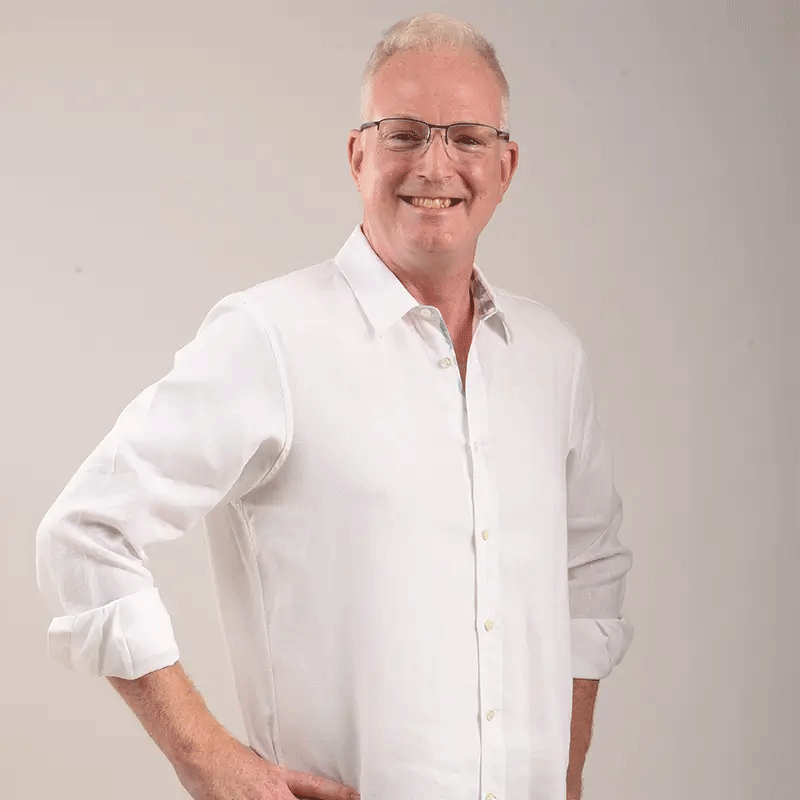
David Nevin is a senior consultant, executive coach, and training facilitator providing professional services for clients in the Asia Pacific region for more than 20 years.
David’s background is in international conflict management. In 2004 he shifted from working on UN-affiliated conflict projects to helping global companies develop leaders and cultures that manage differences of opinion in productive ways.
David is a member of the International Association of Facilitators and the International Coach Federation. Passionate about the SDGs and regenerative leadership, David often uses the 2030 SDGs Game to open conversations about systemic transformation and help people embrace their role in achieving a sustainable future.
As a master facilitator of the 2030 SDGs Game, David works to empower fellow facilitators to transform their own practice in ways that contribute to their success and enhance the impact of the game on the organizations and communities that certified facilitators will serve.
James Bishop
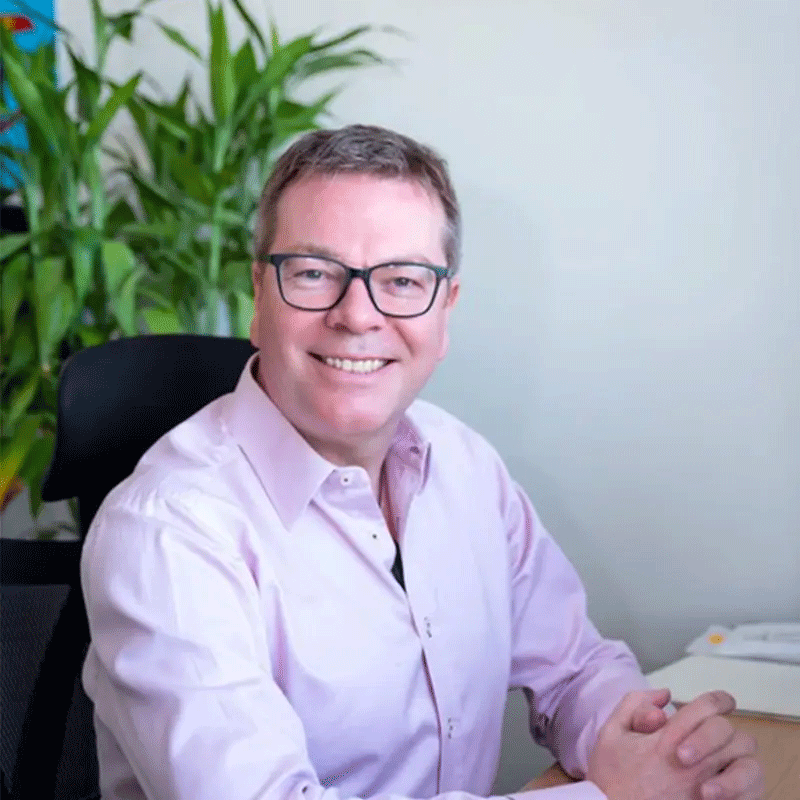
James has worn many hats across different countries—from Park Ranger in New Zealand to managing recruitment businesses and serving as an officer in the Australian Army. Now based in Hong Kong, he designs game-based learning experiences, helping leaders and organizations grow through interactive learning.
Building on his passions for sustainability, community, and gamification, James co-founded Brains-on-the-Beach, a Public Benefit Company. Together with top coaches and experts, they craft innovative workplace solutions for corporate and NGO clients worldwide.
Since becoming a 2030 SDGs Game facilitator in 2018, James has run over 150 games worldwide, engaging diverse audiences across industries. When combined with other SDG and ESG programs his company runs, the game has become a powerful catalyst for change in organizations and communities.
Sustainability has become central to James’ work. As a passionate learning experience designer and community builder, he plans to keep supporting these efforts. With deep ties to family, nature, and community—perhaps from his Kiwi roots—James is driven by a purpose to create lasting impact.
Aya Matsuyama (Lawrie)
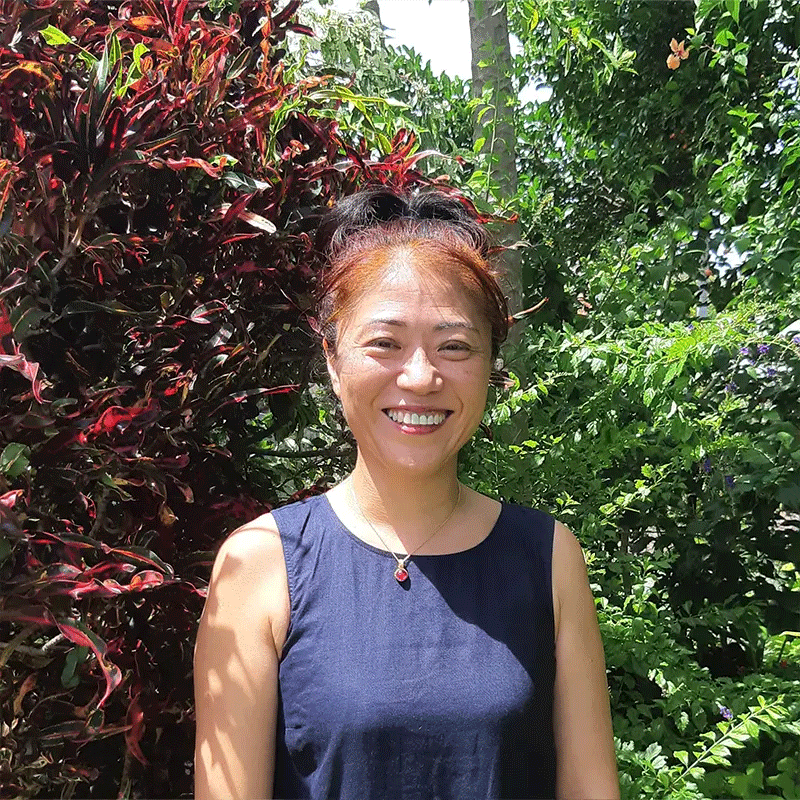
Aya Matsuyama (PhD) is a Darwin-based coordinator and certified facilitator.
She has gained a great variety of work and cross-cultural experiences, starting with working as an engineer designing inspection devices for nuclear power plants in Japan and U.S, an environmental scientist working with Aboriginal communities in Australia to develop groundwater maps, a lecturer/teacher/facilitator at all levels of education.
She also works as a consultant providing her experience to support a few philosophy-driven social enterprises.
She is reaching out to the world with the 2030 SDGs Game to transform our world and ourselves. She is an advocate of meaningful learning through experience; therefore, believes in the potential of the game to bring transformation to ourselves and the world.

